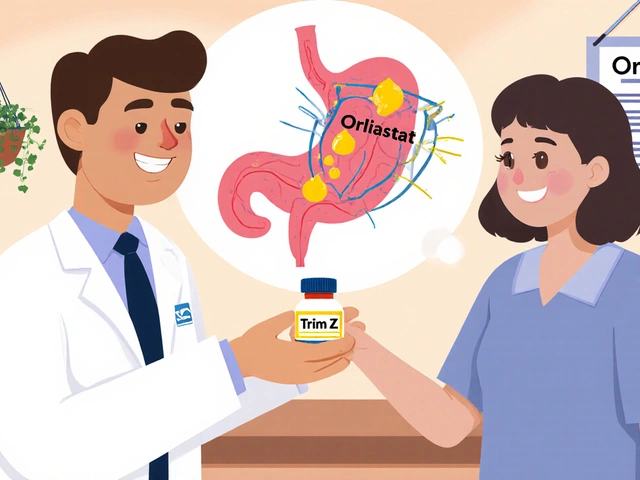Asthma Relief: Simple Ways to Breathe Easier
If you’re tired of wheezing, shortness of breath, or that tight feeling in your chest, you’re not alone. Asthma can flare up at any time, but a few everyday habits can keep it under control. Below you’ll find straight‑forward advice you can start using today, plus a quick guide to the most common treatments. No jargon, just real steps that actually help you breathe.
Know Your Triggers and How to Avoid Them
Every asthma flare begins with something that irritates your airways. Common culprits are dust mites, pollen, pet dander, smoke, and cold air. The first step is to identify what sets you off. Keep a simple diary: note when symptoms appear and what you were doing or where you were. Once you spot a pattern, tackle it head‑on. Use allergen‑proof covers on pillows, wash bedding weekly in hot water, and vacuum with a HEPA filter. If pollen is a problem, keep windows closed on high‑pollen days and shower after being outdoors. Smoking or even vaping around you can spark a bad day, so make your home a smoke‑free zone.
Everyday Actions That Give Fast Relief
When an attack hits, a well‑used rescue inhaler is your best friend. Make sure you know the correct technique: breathe out fully, place the inhaler mouthpiece between your teeth, seal your lips, and inhale slowly while pressing down. Hold your breath for about ten seconds, then exhale. If you don’t feel relief within a few minutes, repeat the dose as advised by your doctor. Beyond inhalers, breathing exercises like pursed‑lip breathing or diaphragmatic breathing can calm the airway muscles and improve oxygen flow. A humidifier adds moisture to dry indoor air, which can reduce irritation, especially in winter. Staying hydrated helps keep mucus thin, making it easier to clear your lungs.
Long‑term control medicines, such as low‑dose inhaled steroids, keep inflammation low so you don’t need the rescue inhaler as often. Talk to your healthcare provider about the best combination for you. Some people find natural options like omega‑3 fatty acids, magnesium supplements, or ginger tea useful as extra support, but they should never replace prescribed drugs.
Our tag page gathers the latest articles that dive deeper into each of these topics. From detailed reviews of antihistamines like levocetirizine for allergy‑related asthma, to guides on buying medication safely online, you’ll find everything you need to manage your condition confidently. Browse the list, pick the pieces that match your questions, and start building a personalized asthma‑relief plan today.
Top 10 Ventolin Alternatives to Manage Asthma in 2024
Exploring alternatives to Ventolin is essential for those seeking varied asthma management options in 2024. This article delves into ten different medications, each offering unique benefits and considerations. From prescription nebula solutions to over-the-counter options, individuals can find suitable replacements that align with their specific needs. Whether you're looking for an inhaler comparable to Ventolin HFA or a non-prescription solution, this guide helps you navigate the choices effectively.





